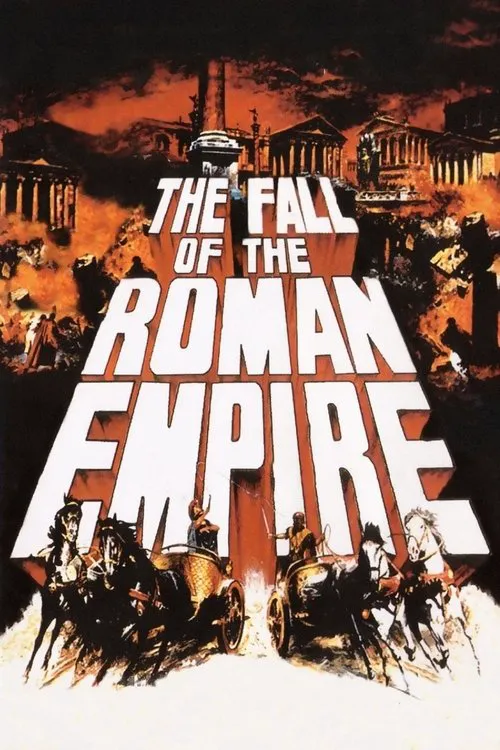The Fall of the Roman Empire

Plot
In the sweltering heat of the Roman Empire, where the once mighty legions stretched as far as the eye could see, a brewing storm threatened to topple the great nation from its pedestal. The year was 180 A.D., a time of great turmoil and upheaval. The Germanic tribes, those fierce and battle-hardened warriors from the north, were gathering at the gates, preparing to unleash a devastating onslaught that would test the mettle of the Roman Empire. At the heart of the empire, the ailing emperor Marcus Aurelius, a wise and just ruler, lay on his deathbed. Weak and frail, he struggled to come to terms with the knowledge that his passing would create a void at the pinnacle of power. The question on everyone's mind was: who would inherit the throne? The emperor's son, Commodus, a man consumed by an insatiable thirst for power and a lust for fame, seemed to be the obvious choice. With a twisted sense of ambition, he had spent years ingratiating himself with his father, trying to curry favor and gain influence. However, his true colors were beginning to show, and the nobles, senators, and generals of Rome were growing increasingly uneasy about his ascension to the throne. On the other hand, there was Gaius Livius, a loyal and seasoned general who had faithfully served the empire for decades. A man of unwavering integrity and a steadfast commitment to Rome, he had the respect and admiration of his peers. With his military prowess and proven leadership skills, many believed he would be the ideal candidate to succeed the ailing emperor. As the fate of the empire hung precariously in the balance, Marcus Aurelius was faced with an impossible decision. His health was fading, and he knew he didn't have much time left to make his choice. Despite his efforts to remain strong, the weight of responsibility was crushing him, and the pressure was mounting. Meanwhile, Commodus, sensing his father's weakness, began to maneuver and plot, using his cunning and charm to turn the nobles and senators against each other. He whispered lies and half-truths in their ears, fueling their fears and playing on their doubts. The more he whispered, the more divisions appeared within the empire, causing the great nation to begin to crumble. As the Germanic tribes closed in on Rome, the once-mighty legions, led by the valiant General Livius, struggled to contain the growing threat. But with Commodus's divisive tactics, the legions were soon plagued by internal strife and infighting. Morale plummeted, and discipline broke down. Rome's military might, once the envy of the world, was now beginning to crumble. In the midst of this chaos, Marcus Aurelius was visited by his loyal general, Gaius Livius. With a heavy heart, Livius pleaded with the emperor to reconsider his decision, to choose the man who had consistently demonstrated his unwavering commitment to Rome and its people. However, in a desperate bid to secure the empire's survival, Commodus intervened, using his mastery of manipulation to persuade the senators and nobles to support his claim to the throne. As the fateful moment of truth approached, Commodus stood before the Roman Forum, the sun setting over the great city. With an oration dripping with flattery and deceit, he addressed the gathered masses, speaking words that promised prosperity and security, while hiding the darkest secrets of his own sinister ambitions. The die was cast, and the fate of Rome was sealed. With a heavy heart, the senators and nobles pledged their support to Commodus, anointing him as the new emperor. The once-great nation, founded on the values of justice, duty, and honor, was now on the brink of collapse, its very foundations shaken by the machinations of its most treacherous and cunning ruler. As the years passed, Rome would descend into chaos, its legions weakened, its people demoralized. The once-unconquerable empire would crumble beneath the relentless onslaught of the Germanic tribes, while Commodus's tyranny and corruption would destroy all that was left of its honor and dignity. The Fall of the Roman Empire was a cautionary tale, a reminder of the dangers of unchecked ambition and the devastating consequences of a nation's downfall. It was a story of a great civilization's collapse, one that would serve as a stark warning to all who followed, a testament to the enduring power of truth, justice, and the unwavering commitment to the values that had once made Rome the greatest empire the world had ever known.
Reviews
Recommendations




